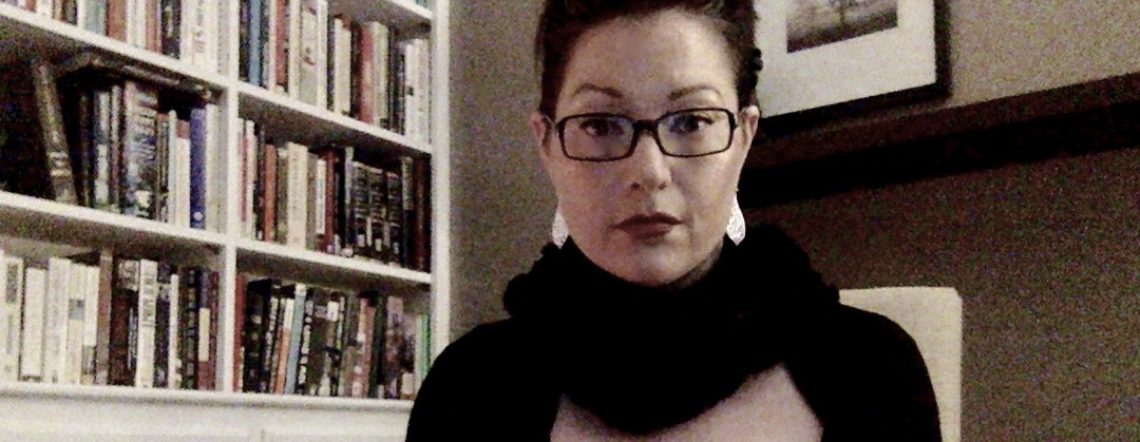“Cheryl, stop chewing on your tubes.”
A disembodied male voice speaks to me out of the darkness somewhere near my feet. I realize I am chewing on something soft and pliable in my mouth. It sticks together when I bite down in a not unpleasant way.
It is difficult to breathe.
“Cheryl, you’re in the hospital. You’ve been in a car accident. Stop chewing on your breathing tubes.”
Breathing tubes.
Oh, God. I’m lying on my side, and it’s dark, and there is something in my mouth, and I can’t breathe. I feel myself slipping back into the darkness, but I’m desperate for air. I force myself to stay awake and take calculated gasps, chanting a mantra I have never used before, but that is the most important thing I have ever said to myself:
Breathe in. Breathe out.
Breathe in. Breathe out.
Just…breathe.
Just…breathe.
Breathe…
It’s still dark, and my mouth is so dry. I hear people talking in the distance but all I see are shadows. I try to say the word “water,” but the sound that comes from me is inaudible, not even a whisper. I try to wave my arms or kick my legs to get their attention, but nothing happens. Am I tied down? I can’t speak. I can’t scream. I can’t move.
I’m trapped.
A woman stands over me. I mouthe the word “water.”
“Honey, I can’t give you any water. You’re on a ventilator. I can try to wet your mouth. Do you want me to do that?”
I nod “yes” vigorously. The woman walks away, and returns with something in her hand. She puts a small wet sponge at the end of a stick in my mouth and rubs it around my teeth. I suck on the sponge trying to get every last drop of the wetness, but it’s not enough.
I whisper the word “more,” but she tells me no.
In my dream, I stand in the grand entry hall of a turn-of-the-century hotel. With a wave of my hand, I turn the iron rails of the staircase into baroque works of art. I spin around and around on the gray marble floors watching the walls and windows become paisley and floral masterpieces.
I awaken and see the curtains drawn around my bed. The darkness and the morphine combine to turn their already psychedelic pattern into an active kaleidoscopic display.
The shapes and shadows undulate in my perception
My feelings swell and stretch, I see from greater heights
I understand what I am still too proud to mention
My mother stands to my left, my husband to my right. I’ve never seen such frightened smiles in my life.
Rob is the brave one who starts. “Hi, sweetie,” he begins. “You’re in the hospital. You were in a car accident…and you broke your neck. You’re paralyzed…from the neck down.”
And I’m surprised only because I realize that none of this information really shocks me – I simply take it in as if he just told me he’d like chicken for dinner. Ok.
But I do realize that my window of lucidity and my verbal capacities are limited, and there are some things I need to know. I whisper the word “paper,” hoping that I can figure out some way to communicate effectively. After three attempts I am understood, and my mother and a nurse turn frantic circles trying to find some.
Miraculously, they find nearby a white piece of paper with the alphabet scribbled in black marker. Apparently, someone has done this before. How convenient.
True to my OCD form, I notice the one mistake in this otherwise perfect solution to a very imperfect situation. The error is glaringly obvious to me, and I focus on it intently. This alphabet has two “I”s, which conveniently makes the three lines symmetrical, but effectively renders the first “I” useless, as it is at the end of the first line and another is much more conveniently placed at the beginning of the second line. It’s just too far to reach.
I cannot point, so Rob holds up the piece of paper and begins a series of arduous questions.
“First line?” I nod my head yes.
“A?” I shake my head, no.
“B?” Again, no.
“C?” No.
Finally, “H?” Yes!
We start again for the second letter in my question. “First line?” No.
“Second line?” Yes.
This continues until I have spelled my first complete question: HOW ARE MY TEETH?
My mother laughs for the first time. I’m not sure if she’s happy to see that my sense of humor, or my vanity, is still intact.
“Your teeth are fine!,” she smiles, as she lovingly cups and rubs my face with both hands, and runs her fingers through my hair. “Your face is fine. You have a scar on the top of your head, but your hair will grow over that. You look fine!” And, finally, my mother looks a little fine, too.
So I move to a more important question.
“First line?” No.
“Second line?” No.
Until…
WILL I DIE?
They both pause, and glance at each other, and my stomach turns.
“No, sweetie,” says my husband, who neither looks nor sounds sure of his answer. He leans down toward me, pressing his face against mine, presumably in an effort of comfort, but I know it is so I won’t see him cry. I can still hear, however, and his sobs are now less than an inch from my ear. “You’re not going to die,” he whispers softly.
And I have to believe him as I slip back into the darkness, because I no longer have the energy to say all of the things I would have said, if the answer had been “yes.”

